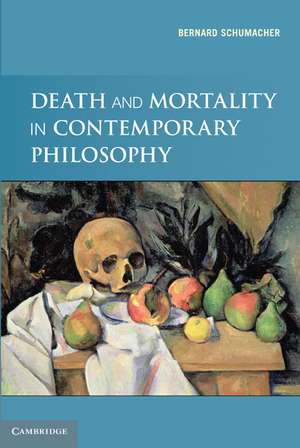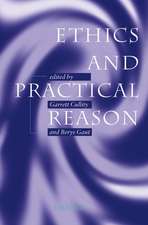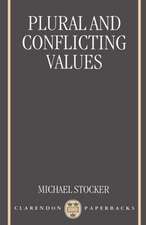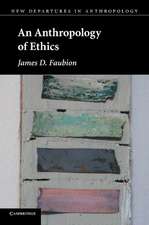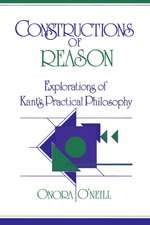Death and Mortality in Contemporary Philosophy
Autor Bernard N. Schumacher Traducere de Michael J. Milleren Limba Engleză Paperback – 29 sep 2010
Preț: 253.67 lei
Nou
Puncte Express: 381
Preț estimativ în valută:
48.54€ • 50.81$ • 40.40£
48.54€ • 50.81$ • 40.40£
Carte tipărită la comandă
Livrare economică 31 martie-14 aprilie
Preluare comenzi: 021 569.72.76
Specificații
ISBN-13: 9780521171199
ISBN-10: 0521171199
Pagini: 270
Dimensiuni: 153 x 228 x 14 mm
Greutate: 0.36 kg
Editura: Cambridge University Press
Colecția Cambridge University Press
Locul publicării:New York, United States
ISBN-10: 0521171199
Pagini: 270
Dimensiuni: 153 x 228 x 14 mm
Greutate: 0.36 kg
Editura: Cambridge University Press
Colecția Cambridge University Press
Locul publicării:New York, United States
Cuprins
Part I. Human Personal Death: 1. Introduction; 2. Biological death; 3. So-called 'personal death'; 4. The anthropological challenge of neocortical death; 5. Ethics as the criterion for defining death; 6. Diversity of definitions of death in a secular ethic; 7. Conclusion; Part II. Theory of Knowledge about Death: 8. Scheler's intuitive knowledge of mortality; 9. Heidegger's being-towards-death; 10. Is mortality the object of foreknowledge?; 11. Inductive knowledge of death and Jean-Paul Sartre; 12. Knowledge of mortality is inseparable from the relation to the other; 13. Death as the object of experience; Part III. Does Death Mean Nothing to Us?: 14. The 'nothingness of death': Epicurus and his followers; 15. Discussion of experientialism and the need for a subject; 16. Death: an evil of privation; Conclusion.
Recenzii
'I strongly recommend this book to anyone with an interest in the philosophical discussion of death or simply an interest in the meaning of his or her own death.' John P. Lizza, Mind
Notă biografică
Descriere
This book provides a critical analysis of the philosophy of human death.
